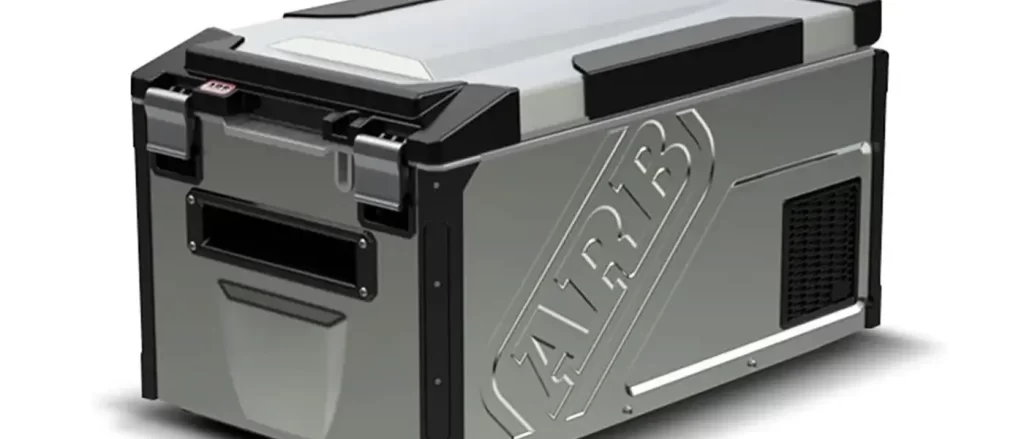RV refrigerators, like any other appliances, can encounter various issues that may affect their performance. Here are some common problems associated with RV refrigerators.
Table of Contents
Common RV Refrigerator Problems
Power Issues
Battery Problems: RV refrigerators often require a stable power source. If the RV battery is weak or not functioning properly, it can lead to issues with the refrigerator.
Shore Power Connection: When connected to shore power, if there are problems with the electrical connection or the power source itself, the refrigerator may not function correctly.
Gas Supply Issues
RV refrigerators often have a dual power source, running on both electricity and propane gas. If there are issues with the propane supply or the ignition system, the refrigerator may not cool properly.
Levelling Problems
RV refrigerators typically need to be level for optimal performance. If the RV is parked on uneven ground, it can affect the operation of the refrigerator. This is especially important for absorption refrigerators commonly found in RVs.
Ventilation Problems
Proper ventilation is crucial for RV refrigerators, especially for absorption models. If the ventilation system is blocked or not functioning correctly, it can lead to overheating and poor cooling performance.
Thermostat Issues
Faulty thermostats can cause temperature fluctuations inside the refrigerator. This can result in food not being adequately cooled or even freezing in some areas.
Cooling Unit Problems
Issues with the cooling unit, such as leaks or malfunctions in the refrigerant system, can lead to poor cooling performance.
Door Seal and Gasket Problems
If the door seal or gasket is damaged or not sealing properly, warm air can enter the refrigerator, making it harder to maintain the desired temperature.
Electronic Control Board Malfunctions
Modern RV refrigerators often have electronic control boards that can fail or malfunction, leading to erratic behavior or a complete breakdown of the cooling system.
Age and Wear
Like any appliance, RV refrigerators can deteriorate over time. Components may wear out, leading to reduced efficiency or failure.
Environmental Factors
Extreme temperatures, whether too hot or too cold, can impact the performance of an RV refrigerator.
Regular maintenance, proper usage, and prompt attention to any issues can help prevent and address these problems. If you encounter persistent issues, it’s advisable to consult the RV refrigerator manual or seek professional assistance for troubleshooting and repairs.
The Weight of RV Refrigerators
The weight of RV refrigerators can vary depending on the size, type, and features of the refrigerator. As of my last knowledge update in January 2022, here are some general weight ranges for common types of RV refrigerators:
Absorption Refrigerators
These are common in RVs and can be powered by electricity or propane. They are generally lighter compared to compressor-based refrigerators.
Small to medium-sized models: 50 to 150 pounds (23 to 68 kg)
Larger models with more features: 150 to 200+ pounds (68 to 91+ kg)
Compressor Refrigerators
These operate similarly to residential refrigerators and are known for efficient cooling.
Small to medium-sized models: 50 to 100 pounds (23 to 45 kg)
Larger models with more capacity: 100 to 150+ pounds (45 to 68+ kg)
It’s important to note that these are rough estimates, and the actual weight can vary based on the brand, specific model, and any additional features the refrigerator may have. Additionally, manufacturers may introduce new models or make changes to existing ones after my last update in January 2022.
For the most accurate and up-to-date information, it’s recommended to check the specifications provided by the manufacturer for the specific RV refrigerator model you are interested in. This information is usually available in the product documentation or on the manufacturer’s website.
The Typical Lifespan of an RV Refrigerator
The lifespan of an RV refrigerator can vary depending on several factors, including the type of refrigerator, how well it’s maintained, and the frequency of use. Here are some general guidelines for different types of RV refrigerators.
Absorption Refrigerators Lifespan
These are commonly found in RVs and use a combination of heat and a refrigerant (usually ammonia) to cool. With proper maintenance, absorption refrigerators can last for many years. Some well-maintained units can last 15 years or more. Regular cleaning, proper leveling, and addressing any issues promptly can contribute to their longevity.
Compressor Refrigerators Lifespan
These operate using a compressor, similar to residential refrigerators. Compressor refrigerators are known for their efficiency and can have a lifespan comparable to that of residential units. On average, a well-maintained compressor refrigerator in an RV can last 10 to 15 years or more.
Factors that can influence the lifespan of an RV refrigerator
Maintenance:
Regular maintenance, including cleaning coils, checking and replacing gaskets, and ensuring proper ventilation, can significantly extend the life of an RV refrigerator.
Usage Patterns:
The frequency of use and the demands placed on the refrigerator can impact its lifespan. A refrigerator used regularly and under more strenuous conditions may experience more wear and tear.
Environmental Conditions:
Extreme temperatures, especially prolonged exposure to high temperatures, can affect the performance and longevity of RV refrigerators.
Quality of Build:
The brand and build quality of the refrigerator can also influence its lifespan. Higher-quality units may have more durable components and a longer overall lifespan.
It’s essential to refer to the specific manufacturer’s guidelines for maintenance and operation included in the RV refrigerator’s manual. If you encounter problems with the refrigerator, timely repairs and addressing issues can help extend its life. Regular inspections and maintenance checks are key to ensuring the refrigerator operates efficiently for as long as possible.
What are Some of the Biggest Frustrations with RV Refrigerators?
RV refrigerators can be a source of frustration for many RV owners due to various reasons. Some common frustrations include:
Limited Space and Capacity
RV refrigerators are generally smaller than their residential counterparts, limiting the amount of food and supplies that can be stored. This can be particularly challenging for those on extended trips or with larger families.
Inconsistent Cooling
Some RV refrigerators, especially absorption models, may struggle to maintain consistent temperatures, leading to uneven cooling. This can result in certain areas of the refrigerator being colder or warmer than desired.
Power Source Dependence
RV refrigerators often rely on multiple power sources (electricity, propane, or battery). Issues with any of these power sources can lead to cooling problems. Switching between power sources can be inconvenient, and power interruptions can impact food preservation.
Levelling Requirements
Absorption refrigerators in RVs often require the vehicle to be levelled for optimal performance. Finding level ground at campsites can be challenging, and an unlevel RV can affect the refrigerator’s cooling efficiency.
Ventilation Challenges
Proper ventilation is crucial for absorption refrigerators, and any obstruction to the vents can lead to overheating and reduced efficiency. Manoeuvring the RV in a way that ensures adequate ventilation can be a concern.
Slow Cooling Time
Absorption refrigerators typically take longer to cool compared to compressor refrigerators. This can be inconvenient, especially when trying to rapidly cool items.
Noise Level
Some RV refrigerators, especially absorption models, can produce noticeable noise during operation. This noise can be bothersome, especially in smaller RVs where the refrigerator is close to living or sleeping areas.
Maintenance Requirements
RV refrigerators require regular maintenance, including cleaning coils, checking ventilation, and inspecting seals. Keeping up with these maintenance tasks can be time-consuming.
Cost of Repairs
Repairs to RV refrigerators, especially if they involve components like cooling units or control boards, can be costly. RV owners may find these expenses frustrating, particularly if they occur frequently.
Limited Upgrade Options
Upgrading an RV refrigerator to a larger or more modern model may be challenging due to space constraints and the specific design of RV kitchens.
Despite these frustrations, many RV owners find ways to work around these issues through proper maintenance, strategic planning, and adapting their habits to the limitations of RV refrigeration. Advances in RV refrigerator technology may address some of these concerns over time.
What is the difference between an RV fridge and a regular refrigerator?
RV fridges and regular household refrigerators differ in several key aspects to accommodate the specific needs and challenges of recreational vehicles (RVs). Here are some of the main differences:
Size and Capacity
RV fridges are typically smaller than regular household refrigerators. This is due to the limited space available in RV kitchens and the need to conserve energy. RV refrigerators are designed to be compact while still providing sufficient storage for the essentials during travels.
Power Sources
RV refrigerators are designed to run on multiple power sources to accommodate the varied conditions of RV travel. They can typically operate on electricity when connected to shore power, propane gas when boondocking, and sometimes on battery power. In contrast, regular household refrigerators are usually designed for constant electricity supply.
Type of Refrigeration System
RV refrigerators often use absorption refrigeration systems, which utilize a combination of heat and a refrigerant (commonly ammonia) for cooling. This type of system is more suitable for the flexible power sources available in RVs. Regular household refrigerators typically use a compressor-based system, which is more energy-efficient but less adaptable to multiple power sources.
Cooling Time
Absorption refrigerators, commonly found in RVs, generally take longer to cool compared to compressor refrigerators found in households. This slower cooling time is a trade-off for the versatility in power sources.
Ventilation Requirements
RV refrigerators, especially those with absorption systems, require proper ventilation to dissipate heat. RV owners need to ensure that vents are unobstructed for efficient operation. In contrast, household refrigerators are typically installed in well-ventilated kitchens, and ventilation is less of a concern.
Levelling
Many RV refrigerators, especially absorption models, require the RV to be leveled for optimal performance. This is because these refrigerators use gravity to circulate the refrigerant, and an unlevel RV can affect cooling efficiency. Regular household refrigerators do not have this requirement.
Portability
RV refrigerators are designed with features to secure items during travel, such as latching doors and sometimes additional cooling fans for ventilation. Regular household refrigerators are stationary and do not have these travel-specific features.
Cost
RV refrigerators can be more expensive compared to regular household refrigerators of similar size. The design and technology required for the flexibility in power sources contribute to the cost difference.
Understanding these differences helps RV owners choose appliances that are best suited for the unique challenges and constraints of RV living and travel.



